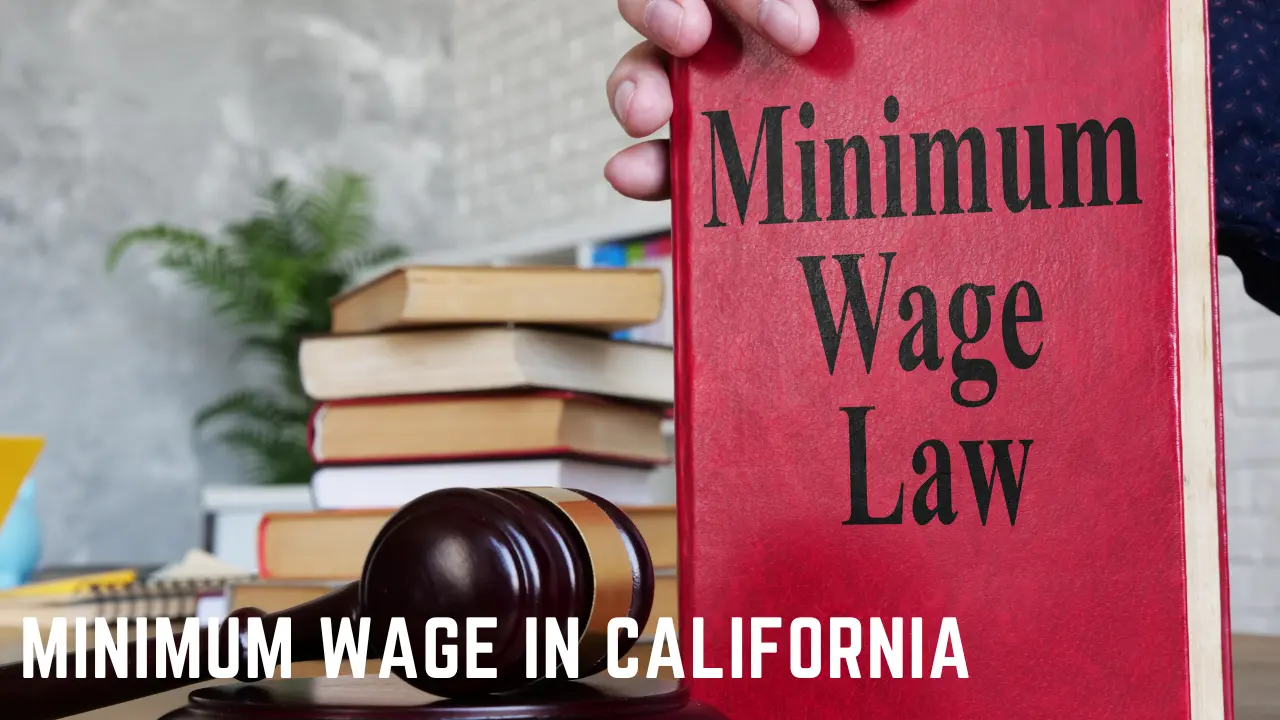An exploration of the minimum wage for servers in California presents an intricate tapestry of regulations and practices. California’s stance on compensation for servers is unique in comparison to many other states, particularly regarding tipped employees.
As we delve into the specifics of state guidelines, federal standards, and the implications of these for both employers and employees, it becomes apparent that understanding these laws is not only essential for compliance but also for ensuring fair compensation practices.
As we unravel the complexities of this subject, we will also touch upon the implications for undocumented servers, a significant group within this workforce, and the legal recourses available in instances of violations.
A comprehensive understanding of these issues is pivotal for anyone operating within this industry.
Understanding California’s Minimum Wage Laws
In order to fully understand California’s minimum wage laws, one must first grasp the fundamental tenet that these laws apply equally to all employees, including those who receive tips, as explicitly stated in the California Labor Code 351 LAB.
Understanding wage theft is crucial to recognizing when these laws have been violated. Wage theft occurs when employers do not fully compensate their employees for their work, often by paying less than the minimum wage.
Enforcement mechanisms are in place to ensure adherence to these laws. These include potential legal penalties for employers and the ability for workers to recover unpaid wages.
In essence, California’s minimum wage laws are designed to protect all employees, ensuring they are fairly compensated for their labor.
Minimum Wage for Tipped Employees
While it is crucial to understand the overarching minimum wage laws in California, particular attention should be paid to the specific provisions that pertain to tipped employees.
- Tip Pooling Dynamics: California law permits tip pooling, where tips are shared among employees. However, managers and supervisors are excluded from sharing in tip pools.
- Employer Obligations: Employers are obligated to pay tipped employees at least the minimum wage without considering their tips. They cannot use tips as a credit towards the obligation to pay the minimum wage.
- Legal Protection: Tipped employees are protected by law against wage theft. They have the right to sue employers for violations, including tip misappropriation and failure to pay the minimum wage.
Comparing Federal and State Tipped Wages
Navigating through the labyrinth of federal and state tipped wages reveals stark contrasts and disparities that underscore the importance of understanding these nuanced regulations.
At the federal level, the tipped minimum wage is a meager $2.13 per hour. However, in the realm of state vs federal, California significantly deviates from this benchmark, offering servers a minimum wage of $16.00 per hour, regardless of the tips they receive.
When we delve into tip credit comparisons, it becomes evident that unlike many states that operate under the federal tip credit system, California prohibits employers from taking a tip credit.
This stark contrast emphasizes the importance for servers to familiarize themselves with the unique wage regulations in their respective states.
Legal Recourses for Wage Violations
Should wage violations occur, California law provides several legal remedies for servers, including the ability to sue for lost wages, interest, and attorney fees. These legal remedies ensure wage recovery and uphold workers’ rights.
- Filing a Claim: Servers can file a wage claim with the California Labor Commissioner’s Office, which investigates wage theft and enforces labor laws.
- Civil Lawsuit: In severe cases, servers can sue their employer in court for wage recovery, where they may be entitled to unpaid wages, interest, and attorney fees.
- Criminal Penalties: Employers may face criminal penalties for wage theft, serving as a powerful deterrent against such violations.
These legal recourses, when used effectively, serve to protect servers from wage violations and provide a route for restitution.
Criminal Penalties for Tip Law Violations
In addition to the aforementioned legal remedies for wage violations, California law also imposes stringent criminal penalties on employers who violate tip laws, further emphasizing the state’s commitment to protect servers’ income and rights. Criminal penalties enforcement carries significant weight in ensuring fairness in the service industry.
This punitive measure includes hefty fines and potential imprisonment, sending a strong message to deter violations. To avert such penalties, employers are encouraged to engage in tip law compliance training, which is designed to enlighten them about servers’ rights and proper handling of tips.
This comprehensive training equips employers with the necessary knowledge and tools to abide by the state’s regulations, thereby creating a fair and lawful working environment for servers.
Wage Protection for Undocumented Servers
Despite their often precarious status, undocumented servers in California are shielded by the state’s minimum wage laws, ensuring that they receive fair compensation for their labor. These laws are in place to safeguard undocumented worker rights and actively contribute to wage theft prevention.
- California’s Labor Code 1171.5 states that all protections, rights, and remedies are available to all individuals regardless of immigration status. This includes undocumented servers who are entitled to the state’s minimum wage.
- The Wage Theft Prevention Act (AB 469) helps enforce these rights, requiring employers to provide written notice of wage rates to their employees.
- Retaliation against undocumented workers who assert their rights is prohibited under California law (AB 263), further fortifying their protection and ensuring fair wages.
Anti-Retaliation Laws for Undocumented Workers
Building on the protections offered by the minimum wage laws, California further upholds the rights of undocumented workers through anti-retaliation laws, ensuring they can safely assert their rights without fear of punitive consequences from their employers. These laws embody the state’s commitment to labor rights, recognizing that all workers, irrespective of their immigration status, contribute to the economy and deserve fair treatment.
The anti-retaliation laws prohibit employers from retaliating against undocumented workers who assert their rights, such as demanding minimum wage or reporting labor violations. Violation of these laws may result in severe penalties for employers, thereby reinforcing the protection for undocumented workers. Thus, these laws significantly fortify the safety net for undocumented workers in California.
Legal Cases Involving Wage Violations
Examining notable legal cases involving wage violations provides insight into the application and enforcement of minimum wage laws in California, particularly pertaining to tipped employees like servers.
- In ‘Lu v. Hawaiian Gardens Casino,’ the court ruled in favor of the employees, exposing wage theft by employers who failed to pay the minimum wage.
- The ‘Ochoa v. McDonald’s Corp.’ case highlighted the importance of fair labor, where the restaurant chain was accused of manipulating time records to avoid paying overtime.
- ‘Hernandez v. Chipotle Mexican Grill’ is a landmark case where servers were awarded compensation for off-the-clock work.
These cases underline the state’s commitment to enforce wage laws and protect servers from exploitation, ensuring that their right to fair labor is upheld.
Legal Assistance for Wage Disputes
Given the history of notable wage violation cases in California, it is imperative to discuss the avenues for legal assistance available to servers who find themselves in wage disputes. Servers can seek legal representation to navigate the complexities of wage dispute resolution. This includes understanding the nuances of California’s minimum wage laws, filing complaints with the California Labor Commissioner’s Office, and potentially pursuing lawsuits for lost wages, interest, and attorney fees.
Legal representatives can provide guidance, protect servers’ rights, and represent them in court if necessary. Furthermore, several firms specialize in such cases, offering immediate responses and support. In summary, legal assistance is a crucial tool for servers in California to ensure they receive the wages they are legally entitled to.
Contacting Jonny Law for Help
For servers seeking legal assistance in wage disputes, reaching out to Jonny Law provides a viable option for professional representation and support. They have a strong track record in advocating for employment rights and offer a comprehensive legal consultation service designed to understand and address the unique complexities of each case.
- Contact: Initiate contact through their online portal or via a phone call. They offer an immediate response within 5 minutes.
- Consultation: Schedule a free legal consultation to discuss your wage dispute. This is a crucial step in understanding your rights and potential legal recourse.
- Legal Representation: Based on the consultation, decide if you want their experts to represent you in your employment rights dispute. Their team is committed to ensuring fair treatment and compensation for all workers.
Conclusion
In summary, California’s minimum wage laws for servers are nuanced, encompassing aspects such as tipped wages and protections for undocumented workers. The potential for both civil and criminal penalties underlines the seriousness of violations.
Comparisons to federal guidelines and other states highlight California’s unique approach. The importance of legal assistance in wage disputes is underscored, marking the role of entities such as the Jonny Law in safeguarding the rights of servers in the state.









